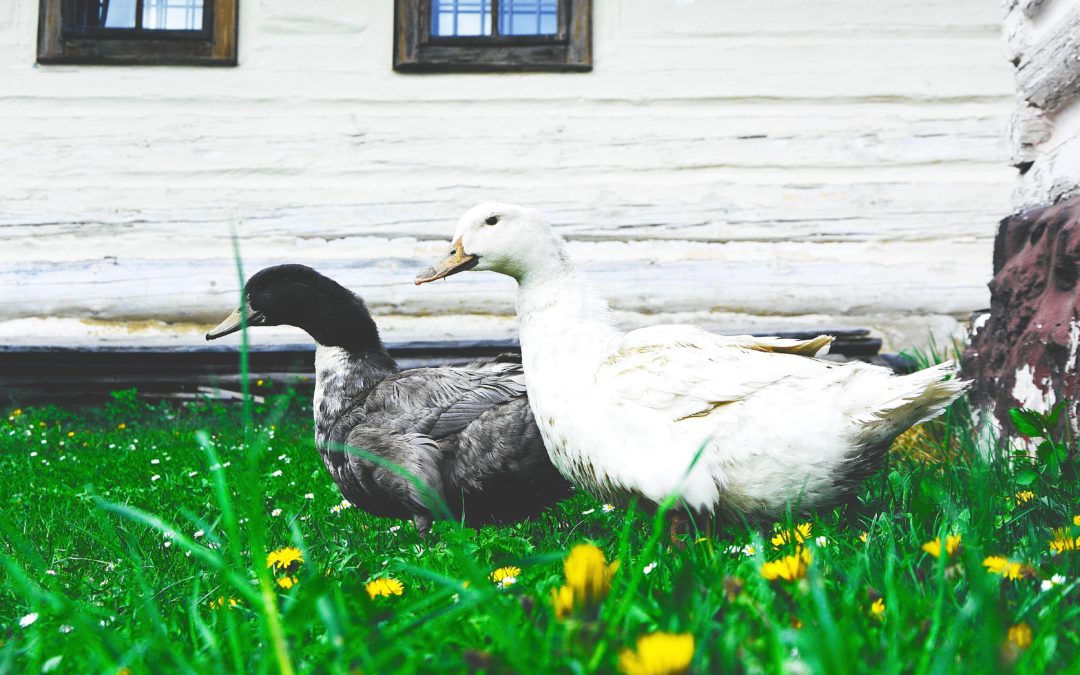
by rossanahead | Feb 12, 2012 | children, Education, technology
By Carmie Dulguime
As a student over 20 years ago, we didn’t need the Internet and all those sophisticated gadgets that children have today. We can proudly tell them that we passed with flying colors without going online for research or having a laptop to use for our reports. We didn’t have tablet PCs that can store our notes, and e-books for references. We also didn’t have the luxury of using online tutorial services to help us advance in our studies.
We used our brains for analyzing skills and memorizing, our hands for writing, our eyes for observing, and our ears for listening. Whatever kids today are doing with their digital aids, we did 10 times more with just our physical senses. We can argue that we were more creative and resourceful since we didn’t have the advantage of having an electronic study partner. But if you look at it, our old school study habits can actually work with today’s technology.
Early birds win: We are calmer, more focused, and more alert when we sleep early and wake up early before an exam. Kids today will argue that they have a lot to cover, so they need to stay up late. You can tell them how we used to do it: we study days before the exam so we have time for more sleep every night. Then we wake up very early to study again since our minds are fresh and alert to absorb more. This is even more useful for those accessing the Internet for studying since connection speed is usually faster early in the morning.
Flash cards for all ages: Kids, especially the older ones, might laugh at the idea, but flash cards will work forever. It’s more fun for studying that requires memorization. It also works better with a study partner. This is easier since there are now Powerpoint slides, Photoshop, or any other program that kids use to make the images for the flash cards. They don’t even have to print them out – just show them straight from the computer, mobile phone, or tablet PC screen.
Remembering the library: Kids probably don’t visit the library as much as we used to because of e-books and the Internet’s own library of millions of resources. But there is nothing like a good book as reference that assures you of credibility and reliability of source. The library is also a great place to study since everyone there is supposed to be quiet. There are computers and Internet access there as well, so there really is no excuse for not choosing the library as a study sanctuary.
Having a break: Getting sleepy, getting a headache, or feeling tired during study is an indication that the body has had enough. That’s the time we stand up, walk outside to get some air, or take a short nap. About 30 minutes to an hour should be good; longer than two hours might lead to distraction. The mobile phone is a good help here as an alarm when it’s time to go back to studying.
Photo by Marten Bjork on Unsplash

by rossanahead | Feb 6, 2012 | career, Education, travel, woman
By Paula Bianca Abiog
Traveling is one of my favorite things to do, and I only realized I loved it when I was already working. I wasn’t able to travel much when I was a kid, since I didn’t have the means and my family wasn’t big on trips. Fortunately I found work in an industry that allows me to travel. Initially, I only went on work trips, but soon I was also planning my trips for leisure.
Since I started working, I’ve traveled to lots of places around the country, from Batanes up north to Zamboanga down south. What I love about traveling is that it gives you the chance to discover new places, try different kinds of food, face your fears, and learn more about yourself. Some of my most memorable trips are the ones that taught me a lot about myself. Just a few months after I graduated college, I was Boracay-bound—alone. It was a work trip for my first job. On my first night in Boracay, I cried in my hotel room. It was my first time to go anywhere alone, and immediately I felt very lonely. But the experience forced me to make new friends and be responsible for myself—I had to budget my money for food, and arrange my own boat transfers. By the end of that five-day work trip, the tears have dried up and loneliness was forgotten.
Soon after that trip to Boracay, I went on assignment to Zamboanga City. I knew I was still in the Philippines, but being there felt so different. I was in a predominantly Muslim city, and it was there where I learned to appreciate and respect the differences in our religions. Not to mention they had fantastic food over there, influenced by Indonesian and Malaysian cuisine.
A trip to Batanes, the northernmost province in the Philippines, helped clear my mind after a painful breakup. Hiking up the rolling hills of Marlboro Country, and watching the crashing waves where the Pacific Ocean and the South China Sea meet helped me gain some perspective. I came back to Manila feeling refreshed and ready to move forward.
Caving in Sagada, Mountain Province and “swimming” in the deep waters of Coron in Palawan, on the other hand, forced me to face my fears. The Lumiang-Sumaguing cave connection in Sagada took me four hours to finish, and it was a struggle to crawl, slide, and jump my way through the dark, slippery cave. In those four hours I felt like I was trapped the whole time, and I was constantly feeling panicky. Despite thinking that I won’t make it out of the cave alive, I felt delighted to have crossed the entire stretch of the cave connection.
In Coron, I realized I was terrified of not being able to touch the floor of the lake while keeping my head above water. I even had a full-fledged panic attack! The trip finally pushed me to take swimming lessons.
And my four-day vacation in Bangkok, my first trip in a different time zone, taught me how to properly plan for a trip—from booking plane tickets to arranging for accommodations and hotel transfers, and everything else in between. It also taught me to just wing it—while my travel buddy and I had a detailed itinerary prepared, you have to allow yourself some time to get lost and go with the flow.
Traveling for me is more than just an escape from my busy life in Manila. It gives me fresh ideas, forces me to think things through, and teaches me things I wouldn’t have picked up while sitting in my office cube. The reasons are more than enough to get me travel bugged.
Photo by Chen Mizrach on Unsplash

by rossanahead | Feb 2, 2012 | career, Education, woman
By Paige de Guzman
When I was still studying in college, I thought I had my life all planned out. I thought I knew what I wanted. When I graduated and went out to the real world, my life’s certainties blew up in my face. All of a sudden, my best laid plans were not what I wanted anymore.
As an undergraduate, I felt like I was a soldier being propped up for battle. I had the best teachers, the best books, the best facilities, and one of the most expensive tuition fees. When I graduate, I thought my life would sail smoothly just like it did at the university.
Well, I was in for a surprise.
While I managed to ace almost every subject I took, I found out that in the real world, I didn’t know everything. While I mastered theories and concepts, I found out that in the real world, things don’t always work out the way they’re supposed to. A lot of variables come into play in everyday life, something that’s absent in pristine libraries and laboratories.
But still I say: Study. Study hard. Study everything that you could get your hands, but make sure you get some practical learning as well. Join organizations. Be active on projects. Read books. Know the world around you. Meet new people. Make connections.
As an undergraduate, you may think that you know everything. But out in the real world, you’ll realize you know nothing at all. Your education is the foundation, but it’s up to you to fashion it into a bright future.
Photo by Siora Photography on Unsplash

by rossanahead | Jan 24, 2012 | career, Education, Mari-an Santos, woman
By Mari-An Santos
I have always been a diligent student. Studying is something I take very seriously, and so I am accustomed to getting good grades in school. Every day, I remember, I would have homework in at least two of my classes and a quiz the next day. I would stay up until late in the night to turn in a more than satisfactory paper; putting in as much study time as I could for upcoming examinations. This work ethic paid off and I graduated cum laude from university.
It took me by surprise then how classes are conducted so differently in Europe. Since my colleagues in my Masteral classes are working people, we only meet on weekends. Professors are not very strict with attendance. In fact, I was surprised to learn that there were actually more than 20 students enrolled in our block; only ten attended classes regularly.
Here in Romania, teachers prefer free-flowing discussions. They encourage students to give their thoughts and opinions. There are no quizzes or midterm exams, only a final paper and the final examination. The burden of learning rests almost entirely on the students’ shoulders—how bizarre!
Because the classes are not conducted in English, I’ve had to work double time on my language skills. I need to pay attention in class in order understand and follow the discussions. Usually, the professor stops in the middle of the class to summarize for me in English what has already been discussed—and to ask for my input. He does the same at the end of the class. In this case, I am challenged to snap back from a bubble of very little understanding, to understand everything that’s been discussed, and to formulate an opinion. This also means I cannot be distracted during class nor can I say “pass” when asked a question.
What do I do on weekdays? I read the books recommended by my professors so that I can follow the class. But even in this area, I have the freedom to choose what I want to read; the professors aren’t strict about reading lists as well.
In many ways, it is an admirable system. Each student is responsible for his own performance—whether he comes to participate in class, reads appropriate books, and strives hard to write a good paper and perform well during the examination. In effect, the student is also able to formulate his own ideas based on what he learns from various sources. If he’s lazy, then he won’t learn anything.
Now, I have become more accustomed to being less pressured and frazzled about school. If I don’t do my readings, then I only have myself to blame for not performing well in class. It is also up to me to digest all these concepts and ideas, and decide what I think and feel about them.
And the papers? Well, we’ll see how I fare come examination week.
Photo by David Travis on Unsplash

by rossanahead | Jan 21, 2012 | children, Education, family, parenting
By Romelda C. Ascutia
Father and son were squatting in front of their gate, hunched over black dots on the ground that as I passed by took on the shape of adorable ducklings.
Children and animals go beautifully together like coffee and cream, and my two sons had their own share of animal bonding while they were growing up.
A long list of pets became transient visitors in our home over the years. During mall visits, a stopover at the Bio Research store was a must for the boys, who wanted to admire all the animals on display. Sometimes my kids would succeed in convincing their parents to make a purchase, promising to take good care of their wards. We were naïve to believe them.
One time we bought hamsters, which came complete with a convoluted cage that had all the works including spinning wheels, tunnels, and turrets. For weeks the boys would rush home from school eager to check on their pets, feed them, caress them, and clean their cage. But as time passed, the boys, with the typical short attention span of children, lost interest and moved on to the next attraction, and I was saddled with the care of the abandoned creatures.
The parade of critters in our house included turtles, tropical fish, and white mice that my kids snuck into school, kept hidden in their breast pockets to be shown to their classmates during recess.
The school was another rich source for acquiring pets. Ambulant vendors outside the school premises would entice the pupils to buy goldfish contained in little plastic bags filled with water. There were also chicks and ordinary brown birds given a makeover and dyed garish pinks and blues and greens. My children never let any of these opportunities to bring a surprise pet home pass.
At one point they brought back ducklings, and had a merry time being trailed everywhere by the baby ducks that had mistaken them for their mothers. Unfortunately, the ducklings would later be accidentally squished underfoot.
Of all the animals they had, my children were most obsessed with, to my dismay, spiders. They used up their school allowance to buy spiders locked inside matchstick boxes. These were not regarded as pets, but as combatants to be placed on broom strands and pitted against the spiders of peers. I was glad when they outgrew that phase.
Two particular pets stand out in my memory. One was a pair of outrageous quails which had the most eardrum-splitting squawk I ever heard. Like roosters with a sore throat, they woke us up in the morning with their hoarse noises, and curious neighbors would come by and ask us what those horrid sounds coming from our house were. We grew fond of those awkward fowl which, sadly, met a horrible end in the jaws of the neighborhood cats after my sons forgot to bring them inside the house one night.
The other unforgettable pets we had were hermit crabs. These creatures were sold by pedestrian vendors then, but recently they have found their way into malls. Their shells have been painted in bright colors or cartoon designs and they come housed in proper cages. Of course, they also carry a much fancier price tag.
Our hermit crabs resided in a cardboard box and were actually a breeze to care for. But when my children got tired of them as usual, the neglected crabs escaped from their box, and I assumed they had died from lack of food. Then one day, like Sigourney Weaver in Alien, I saw a strange form dart from behind the refrigerator. It was a hermit crab. The hardy creature had apparently survived for months scavenging on its own (which probably does not say much about my housecleaning skills).
My kids no longer ask me to buy all sorts of pets for them. But they have learned the valuable lesson of taking responsibility for other living creatures they take under their wing, and they now help me feed and care for our pets. They have also learned to respect the right to life of all animals, and during heavy rain would catch frogs that cross our street to put them back safely in the vacant lot where they came from.
Photo by David Jusko on Unsplash





